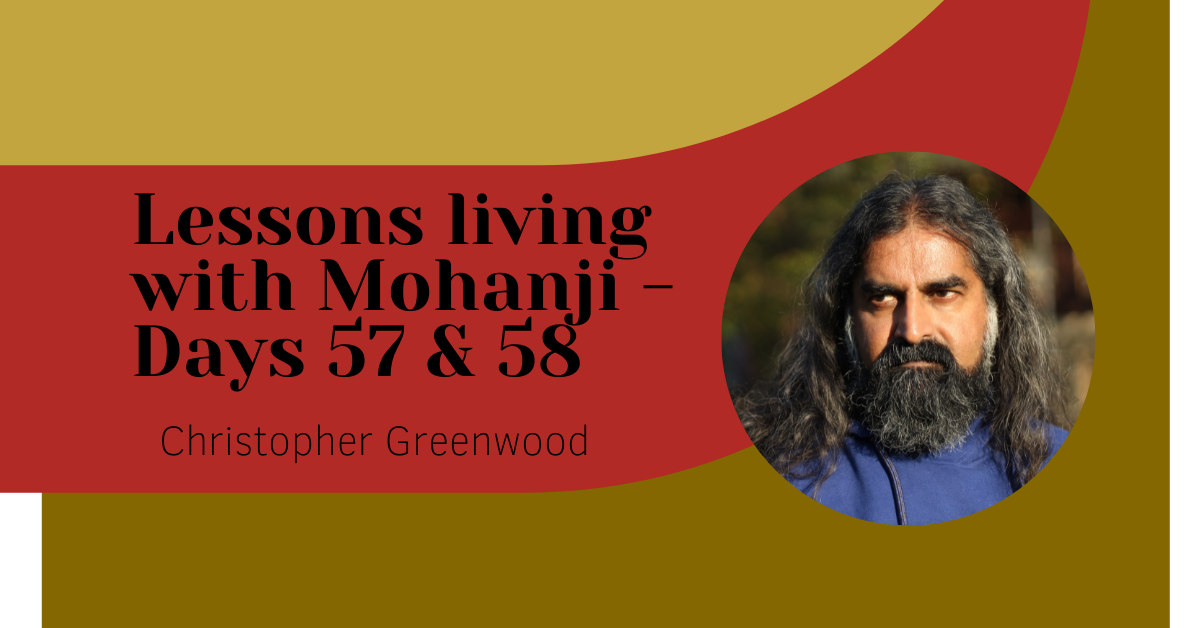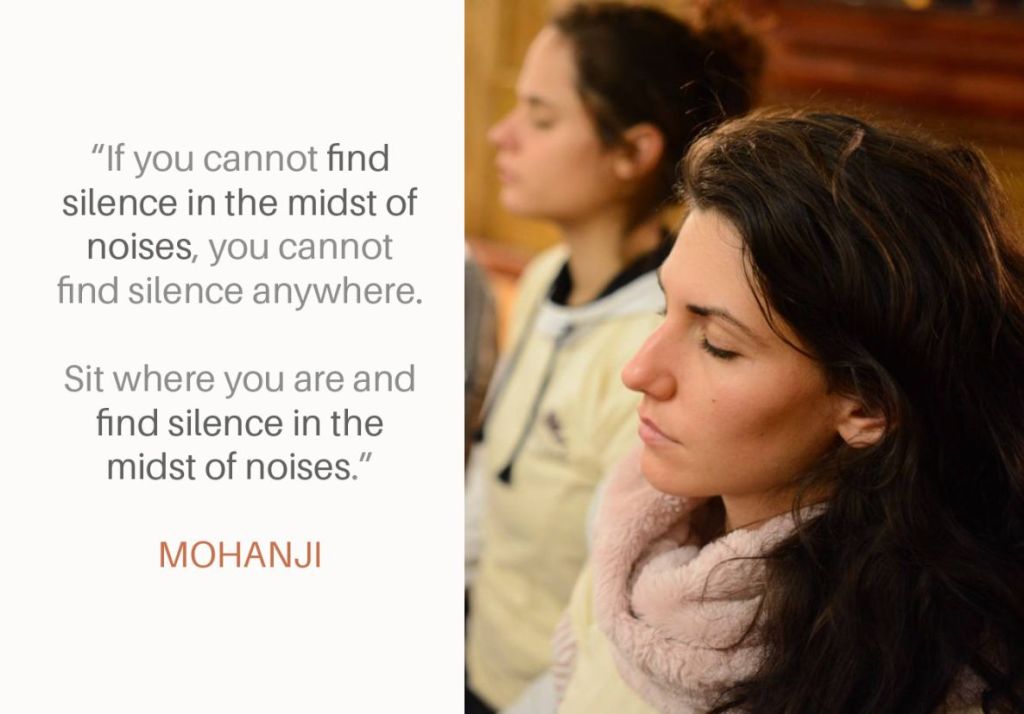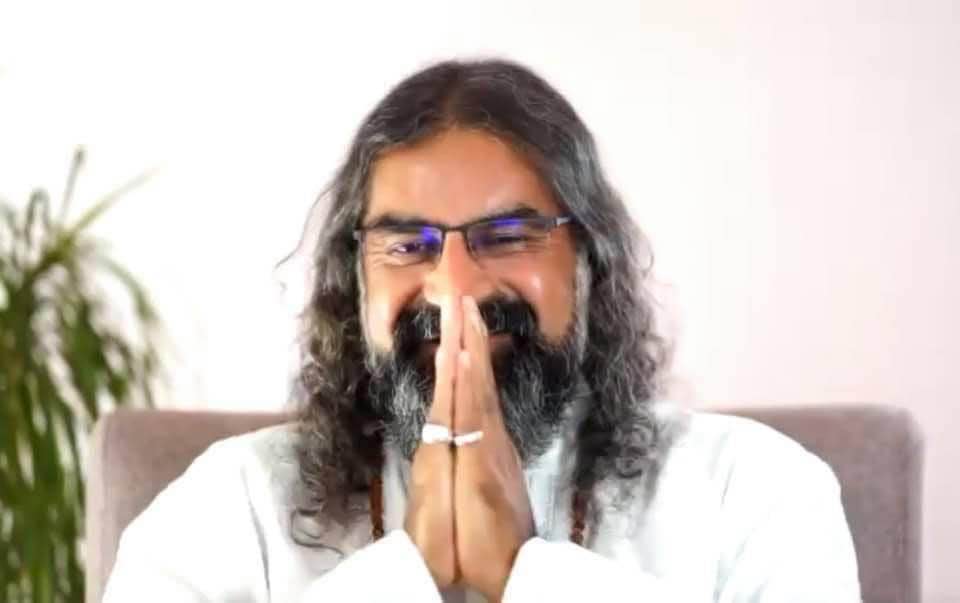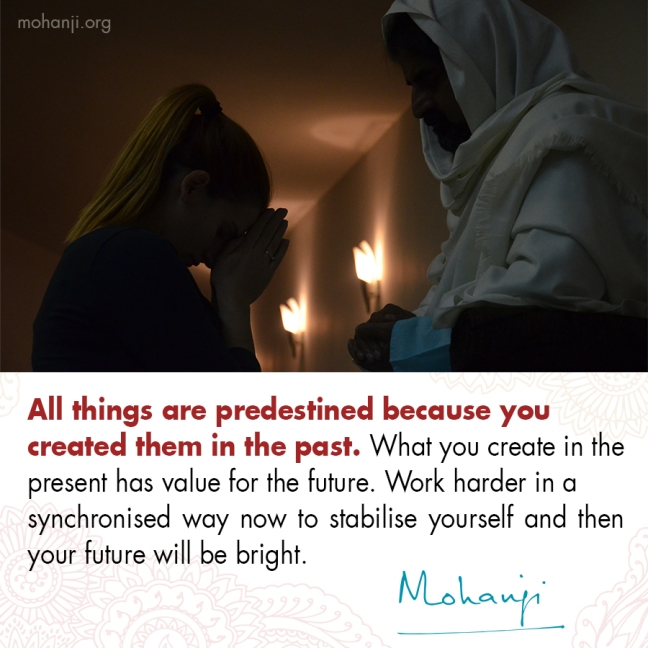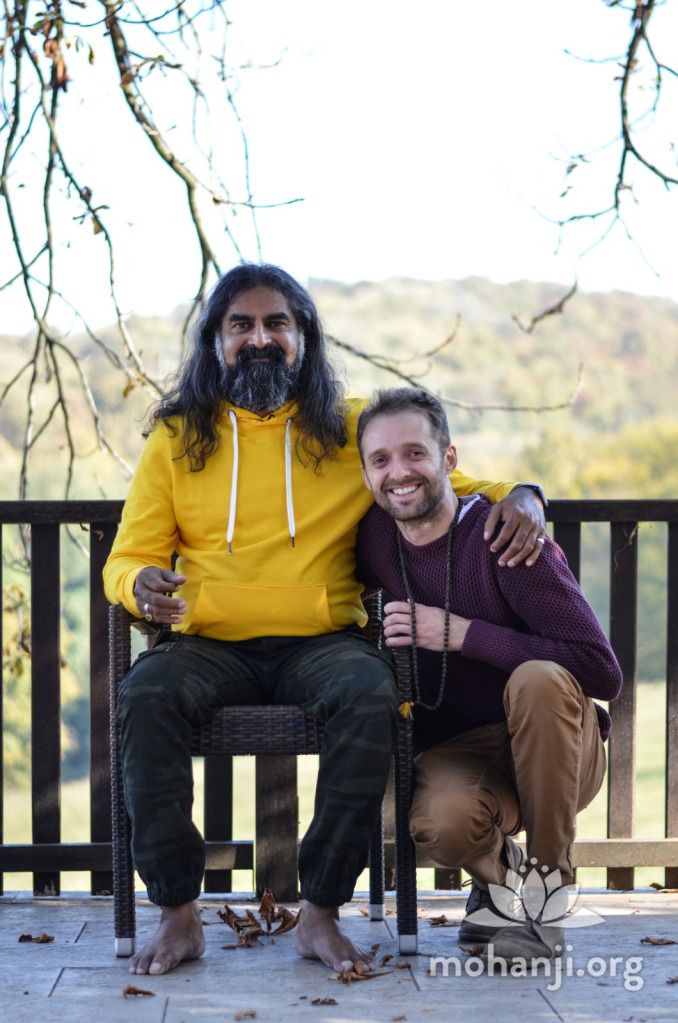by Christopher Greenwood
Day 57 lesson – The power of silence
The past days here have been very much routine, something that I’ve spoken of before. And for me, that’s waking up, doing practices for myself, make sure everything’s organized or planned for the day. And then I’ll speak to Mohanji about his activities, the day’s activities, and anything else we need to speak about. And depending on how busy he already is, or how much we need to cover, that will be the time that I spend there.
Then we have morning aarati at 6 am. It’s important here that we all attend, and it takes place in the puja room downstairs. Mohanji will be there sitting in his chair with the windows open, and all the beings that come to see him take his darshan, the birds, and the squirrels.
For the past few days, I’ve been keeping conversation to a minimum because I’ve had some discomfort in my mouth, causing a bit of pain, which is fine, but I’m speaking only when necessary.
This reminded me of one of the really good practical lessons that I observed from Mohanji. I have known about it sometime before being here, but it was also reconfirmed during the Bootcamp session we had. And this is the power of silence. The fact that in any situation that we face, silence is always an option for us, and it can be really powerful.
Before having the role I do now, I used to work in business, large projects mainly, complex technology projects. And there were always many issues because things were never planned, there were never enough people, so we were always tight for time. There were always problems. People would have their interpersonal challenges as well; some people would not get along with others.
In meetings, there would be a competitive environment where many people want to speak over each other to get their point across. Tensions were high because of the pressures, and people would be really easy to snap.
So what I learned from watching some of Mohanji’s videos is that silence is always an option for us in situations. Especially when I felt provoked into speaking or triggered, it was to actually respond with silence rather than reacting to that because I found those situations were often coming from an emotional place. If someone had said something, or I didn’t agree with something, the immediate instinct was to react. And that was one of the habits I had.
This sometimes had a good effect, and other times not so good results, because it either helped move things forward, or it could turn disastrously wrong. Especially if I was critical of someone else because people remember that – the injury of words can last much longer than a physical injury.
So I remember that silence is an option, and sometimes I choose not to speak. And actually, that would be more impactful than trying to speak because lots of people are eager to get their point across.
This holds true now as well. I was thinking about this again, contemplating that previously I’d be very eager to speak, to share my view, but I realized that it’s not always necessary. And also, if someone is angry or frustrated, or they are in an emotional space, then just by being silent, it can be an instant diffuser to that situation that completely calms or neutralizes it.
I found as well that sometimes people are looking for a fight or some provocation. And silence as a response has its power in those situations.
The added benefit, something which I’ve been thinking about more as we’re walking this path, especially silence being a key aspect of it is that when there were situations where I would respond or react with an equal conversation, emotions or frustrations, they would stay much longer in the mind; the events would even replay themselves. This would cause more disturbances because it would spoil my day and also the other interactions.
With silence as a response, the event passes much more quickly. And I see Mohanji responds in this way often in situations, too, especially when questions are asked that don’t necessarily need an answer, where they’re being asked from a place of just for the sake of asking. Using in the appropriate time, silence as a minimum response is always an option.
I hope you enjoyed this, and I’ll be interested to know if any of you have found the same benefits of silence in your interactions.
Day 58 Lesson – The state of stability
Today I wanted to share a learning about one of the themes for this year 2021, which is stability.
One of the things that stands out for me about Mohanji, which comes from sitting with him day to day and observing how he interacts with the various people who are contacting him, is his stability and steadiness.
I’ve been here for many months now, sharing each morning. The variety in scale and also intensity of the situations which Mohanji handles is very vast. Some people may think that it’s just the Mohanji Global platforms which he is looking at, but there’s much more that he’s handling, actually. He acts in a friendly advisor capacity to many people worldwide. So he’s involved with many of their activities and situations, too.
I found that regardless of what’s happening, what the situation is, he remains stable, steady. And he doesn’t waver or sway in how he treats people. And he said this before; he always stands by people, no matter what. If they stand by him, he stands by them.
For many people, if something is happening in their lives, it can spill over into other areas of their lives. But with Mohanji, nothing of what he’s handling ever spills over into any other conversations, any other activities. They are all very discrete and separate. He takes situations as they come and handles them as they come. There are no emotions added. Everything is dealt with and then finished and completed.
Whether this is somebody that’s dying, someone is being born, a new baby coming into the world, or somebody who’s getting married, it’s all on a similar level to him. Because he handles everything as it is. This doesn’t mean that he’s not engaged. He’s fully engaged, but it’s a state in which I can observe where he’s operating from and how he’s living with complete calm and complete stability.
I think this is why he has such an appeal with people because it’s hard to find people like that in the world that are so stable and steady. Because people have minds, they are swayed by emotions, opinions, concepts. And we create imaginations, expectations, and then the corresponding sorrows. This is something that I’m learning through observing Mohanji, that there is a state that’s beyond all these turbulences of the mind. It exists, and Mohanji represents that.
It’s a good reminder because I find that I can sometimes be taken very easily for a ride by the mind. There have been situations that trigger a reaction in me, and then the mind will gladly take hold of it, compare it with other situations, dissect it, distorted it, maybe give a new narrative to it. Before I know it, it’s something completely different from the actual reality of the situation at hand.
In the recent Invest in Awareness program, we spent a lot of time talking about the mind. The mind being a projector – what is inside us is projected outside onto the canvas of the world. So whether it’s love, whether it’s hate, or views, or opinions, it’s projected out. Then if we experience what comes back, and we like it, or more accurately, it matches our expectations, we’re happy and satisfied. But if something comes back, which we don’t like, or doesn’t match our expectations, then we’re unhappy. We even carry that event longer, creating more suffering.
This can happen at any time. It happened recently to me unknowingly. And for a time, it really tilted me and my focus, and it was created by some unconscious expectation. When it wasn’t met, then obviously, the unhappiness came. But the suffering was not so much because it was possible to recognize that it’s a situation of my mind, and remembering that steadiness of Mohanji, that he’s the same from yesterday to today, and he will be the same tomorrow.
A good reminder and a learning for me is that whilst we have a mind, it can always be prone to its fancy, unconsciously or consciously. As I observe Mohanji handling many different scenarios, it’s a good reminder that that stability is always a real possibility. I think it clearly demonstrates where he’s operating from, which is certainly not the fluctuations of a changing mind.
|| JAI BRAHMARISHI MOHANJI ||
Edited & Published by – Testimonials Team, 12th September 2021
Disclaimer:
The views, opinions, and positions expressed by the authors and those providing comments on these blogs are theirs alone and do not necessarily reflect the views, opinions or positions of Mohanji, Mohanji Foundation, it’s members, employees or any other individual or entity associated with Mohanji or Mohanji Foundation. We make no representations as to accuracy, completeness, timeliness, suitability or validity of any information presented by individual authors and/or commenters on our blogs and will not be liable for any errors, omissions, or delays in this information or any losses, injuries or damages arising from its display or use.
We reserve the right to delete, edit, or alter in any manner we see fit blog entries or comments that we, in our sole discretion, deem to be obscene, offensive, defamatory, threatening, in violation of trademark, copyright or other laws, of an express commercial nature, or otherwise unacceptable.
Mohanji Testimonials team

